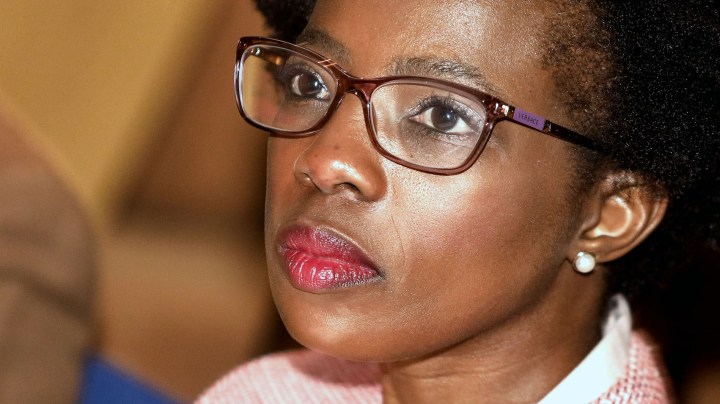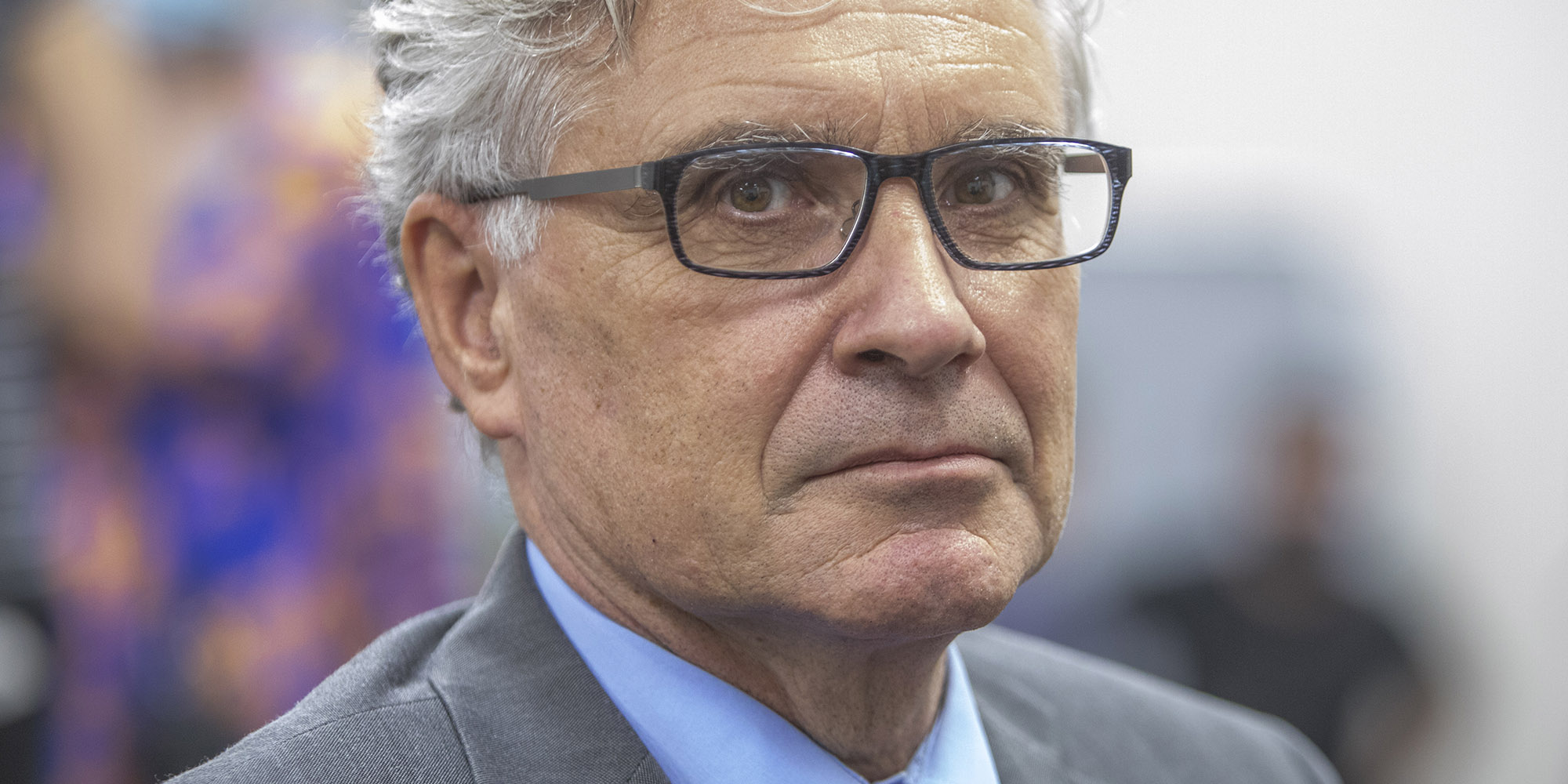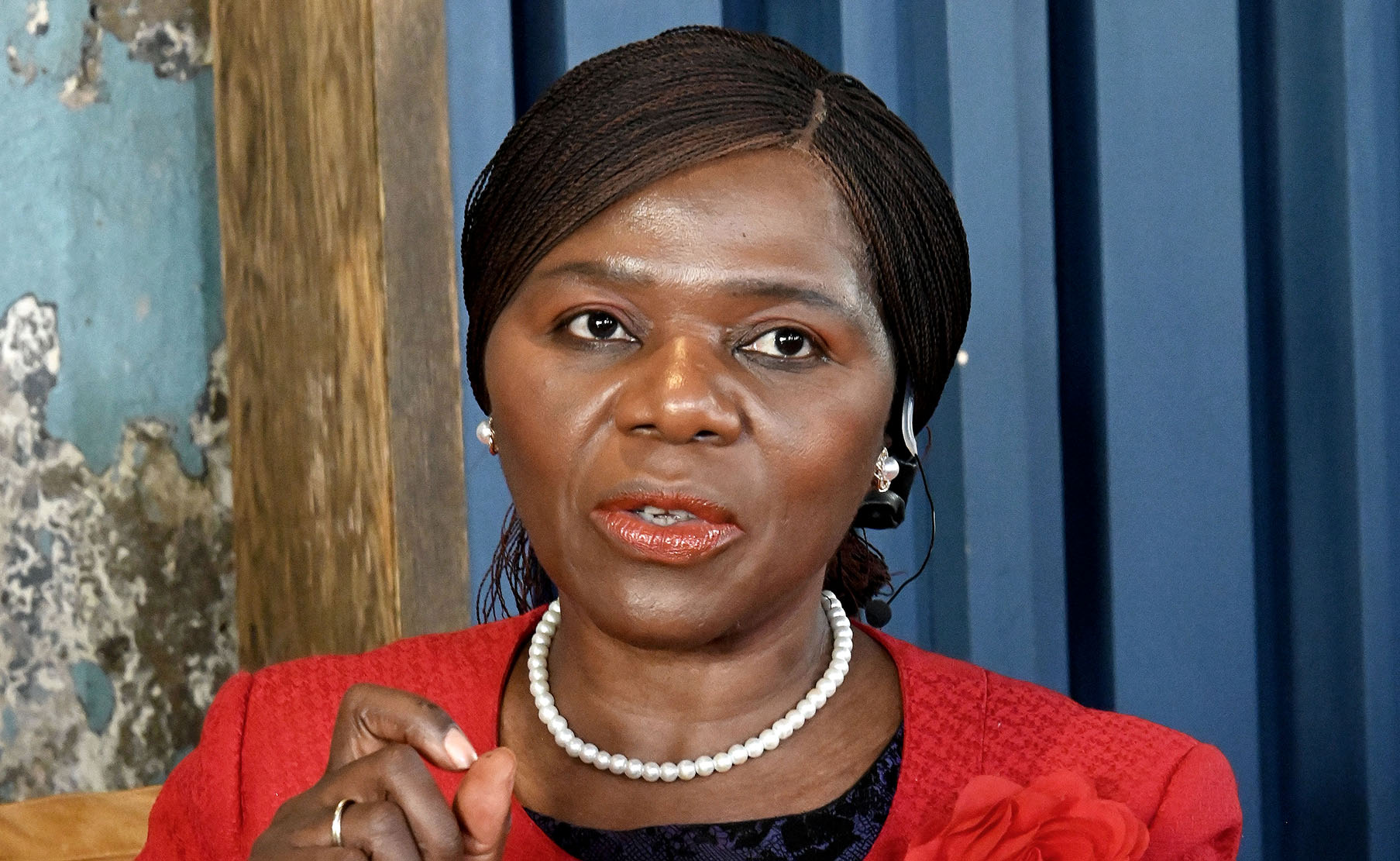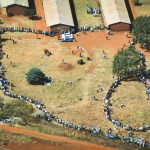HUMAN DECENCY
Public Protector Gcaleka believes SA needs a courageous response to corruption

We need to start reading books about anti-corruption to our children and ensure that our educational system is centred on ethics and human character, Public Protector Kholeka Gcaleka tells the annual Social Justice Lecture.
“This year marks 30 years since the first democratic elections in 1994. The national sentiment among citizens, stakeholders, communities and civil society seems to be the same. I quote, ‘democratic yet unequal and still impoverished’. The systemic and structural socio-economic disparities in health, education, housing, land and social life remain the unfortunate hallmark entrenched in our society.”
So said Public Protector Kholeka Gcaleka at the fifth annual Social Justice Lecture at Stellenbosch University [SU] on Tuesday, 20 February. Her address focused on the question: “Social justice, an antidote to poverty –30 years into democracy, what still needs to be done?”
Social justice in the South African context
Gcaleka said that while South Africans took stock of where we were as a country, it was important to acknowledge the courage of those brave people who, through their collective efforts, had laid the very foundation of the new democracy and its hopes and aspirations that we could reflect on today.
“Social justice is more than a morally important imperative. In essence, social justice in the South African context, is a multifaceted and progressive commitment to rectify past injustices, and today I say, social justice must be an enabler to an equal and inclusive and sustainable economy for the better lives of the people,” she said.
Gcaleka added that social justice was deeply interwoven with South Africa’s journey towards reconciliation, inclusivity and sustainable development
“The Constitution licitly emphasises social justice […]. It recognises socio-economic rights, such as the right to housing, health care and education. These rights are not mere aspirations, they are legally enforceable through our Constitution,” she said.
Social justice aligned with sustainable development goals and played a pivotal role in fostering social cohesion, especially in a country with a diverse population such as South Africa.
“In this context, social justice refers to the fair distribution of resources, opportunities and rights within a society and aims to address historical inequalities, discrimination, and marginalisation,” she said.
Significant strides made, but challenges remain
While significant strides had been made towards social justice, challenges persisted, Gcaleka said.
“Post-apartheid socio-economic transformation efforts pursued by the government have been substantial but have fallen short of public expectations for more rapid change,” she said.
These unmet expectations had likely contributed to sections of society increasingly opting out of mechanisms underpinning democracy, such as reporting to the public protector or exercising one’s democratic right to vote.
“The high levels of poverty and inequality are an antithesis to the quest for social justice,” she said.
South Africa faced stark economic disparities, with 55% of the population living in poverty and a quarter of the population facing food poverty.
“The gap between the have and have-nots is widening, perpetuating social injustice,” she said.
Gcaleka said the worrying factor from the perspective of the public protector was the extent to which poverty levels in South Africa were significantly influenced by a lack of good governance and service delivery and high levels of corruption within the public administration.
Weakness in governance led to the mismanagement of resources, inefficiencies and inadequate delivery of services, she added
“Approximately 30% of complaints that come before us as an institution relate to governance failures, whilst above a half of those relate to lack of delivery of adequate services,” she said.
Gcaleka said it was undeniable that, generally, access to services such as electricity, water and sanitation had improved. However, almost 30 years later, South Africa should be further along in its development.
The public protector’s role in achieving social justice
“By investigating complaints, taking remedial actions to effect improvements and monitoring implementation, our institution can contribute significantly to social justice and poverty alleviation,” Gcaleka said.
“In recent times, we have reflected even on our own mandate, as the public protector, and our standing in society, and have come to the conclusion that it is important that we rebuild and protect our own integrity, for us to have the respect that this institution has once had and also to instil a more positive response by state institutions to implement our remedial actions”.
Gcaleka said that while all constitutional checks and balances were important, it should not be left to the state to ensure that we had a living Constitution capable of accommodating our collective dreams and aspirations as a nation.
“It must also be understood that development should be the pursuit of everyone, with the state primarily acting as an enabler and regulator,” she said.
For most people, a better life involved access to and security of basic needs and services, food, health, education, housing, water, sanitation and electricity, which many of us took for granted as part of an ordinary life, Gcaleka said.
“We must positively experience this government, not merely be communicated on programmes, but positively feel the presence of governance in government. It is this positive feeling and experience of commitment in other state institutions, including institutions of higher learning, that citizenry will see the fruition of what is enshrined in our Constitution,” she said.
Gcaleka said she hoped SU would implement the recommendations in pursuit of social justice included in the commission of inquiry into allegations of racism at SU, authored by retired Judge Sisi Khampepe.
“It starts with our doorstep, and then we can make that as an example, not only to Stellenbosch but to the rest of the country and the world,” she said.
SU committed to transformation, says De Villiers

Stellenbosch University rector and VC Wim de Villiers said the university was committed to supporting the Centre for Social Justice and its director, former public protector Thuli Madonsela. (Photo: Leila Dougan)
The Social Justice Lecture coincided with World Day of Social Justice, celebrated on Tuesday, 20 February.
Speaking at the lecture, Professor Wim de Villiers, SU rector and vice-chancellor, said promoting and living in a free and democratic society was an integral part of the preamble of the Constitution of South Africa.
“Unfortunately, South African society remains divided and unequal in its entirety even after almost 30 years of democracy,” he said.
De Villiers said social justice was an essential aspect of building a fair and equitable society where all individuals had equal access to opportunities, resources and basic human rights.
“At Stellenbosch University, we have made a commitment to be a force for good in the transformation of South Africa into a place of opportunity for all, a place of shared prosperity and a place where there is sustainable peaceful coexistence,” he said.
“This is not an easy road, especially considering the history of our institution. There are many, many challenges. We have limited resources, and it often requires us to have uncomfortable conversations.”
De Villiers said these were not lofty ideals but causes well worth time and effort, which was why SU was committed to supporting the Centre for Social Justice and its director, former public protector Professor Thuli Madonsela.
From one Public Protector to another

Professor Thuli Madonsela, director of Stellenbosch University’s Centre for Social Justice, asked her successor as public protector Kholeka Gcaleka what ordinary people could do to build an ethical state. (Photo: Oupa Bopape/Gallo Images)
After concluding her lecture, Gcaleka answered questions from Madonsela.
Madonsela’s first question was what ordinary people could do to build an ethical state.
Gcaleka said people needed to be courageous, as those who were corrupt and those who functioned through malfeasance did so courageously, and we could not face that with cowardice.
Educating from a young age about corruption was also important.
“We need to start reading books of anti-corruption to children. We need to ensure that our educational system is centred around ethics, is centred around human character”.
Gcaleka added it was vital to go back to the basics.
“Our culture as South Africans is focused around Ubuntu. The principle of Ubuntu centres around the human character.”
“Who are you? Where do you come from? Where are you headed as a human being, and for me, that’s where it really needs to start,” she said. DM




















 Become an Insider
Become an Insider
Comments - Please login in order to comment.